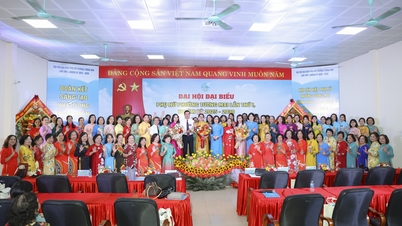One of the important benefits that employees are often interested in is annual leave. So, if they do not take annual leave, will they receive salary?
According to the Vietnamese Labor Code, all employees who have worked for an employer for 12 months are entitled to annual leave, with a minimum of 12 working days, not including holidays and Tet. For employees who do heavy, hazardous work or work in places with harsh living conditions, the number of days off will increase.

No annual leave, depending on each specific case, employees may or may not be paid. (Photo: Thanh Ba)
Specifically, underage workers, workers with disabilities, and workers in arduous, toxic, or dangerous occupations are entitled to 14 working days off. Workers in especially arduous, toxic, or dangerous occupations are entitled to 16 working days off.
Employees who have worked less than 12 months for an employer shall receive the number of annual leave days in proportion to the number of months worked.
Only in the case of termination or loss of job where the employee has not taken all the annual leave or has not taken all the annual leave days, shall the employer pay the salary for those days not taken.
In addition, the Labor Code also stipulates and encourages agreements that guarantee employees more favorable conditions than those prescribed by labor law.
Therefore, if an employee does not take annual leave, or does not take all the days off, the law does not require the company to pay wages for those days off. However, the employee needs to review the labor contract between you and the company, or the labor regulations to see if there is an agreement on salary payment or benefits for these days.
It can be seen that although annual leave is a right, many employees often do not use all of their leave days. Whether or not they are entitled to receive salary for unused annual leave days depends on the agreement in the contract between the employee and the employer.
The salary for unused annual leave days will be calculated based on the salary that the employee receives in the labor contract. Specifically, the salary to be paid for a unused leave day is calculated based on the average salary of the employee in the previous month. This is a way to ensure that employees still receive fair benefits even if they do not take leave.
Some cases may be denied payment if the employee voluntarily fails to take leave without a valid reason or fails to notify the employer as required by the company's regulations.
In summary, not taking annual leave can bring immediate economic benefits through receiving pay for days not taken. However, employees should also consider the financial benefits and long-term health benefits. Understanding the leave entitlements and choosing the appropriate option will help employees balance work and personal life most effectively.
Source: https://vtcnews.vn/khong-nghi-phep-nam-truong-hop-nao-nguoi-lao-dong-duoc-huong-luong-ar903318.html



![[Photo] Joy on the new Phong Chau bridge](https://vphoto.vietnam.vn/thumb/1200x675/vietnam/resource/IMAGE/2025/9/28/b00322b29c8043fbb8b6844fdd6c78ea)

![[Photo] National Assembly Chairman Tran Thanh Man presided over the welcoming ceremony for Chairman of the State Duma of the Russian Federation Vyacheslav Volodin](https://vphoto.vietnam.vn/thumb/1200x675/vietnam/resource/IMAGE/2025/9/28/889b54ac5cd440099ddc618c99663612)
![[Photo] High-ranking delegation of the Russian State Duma visits President Ho Chi Minh's Mausoleum](https://vphoto.vietnam.vn/thumb/1200x675/vietnam/resource/IMAGE/2025/9/28/c6dfd505d79b460a93752e48882e8f7e)
![[Photo] The 4th meeting of the Inter-Parliamentary Cooperation Committee between the National Assembly of Vietnam and the State Duma of Russia](https://vphoto.vietnam.vn/thumb/1200x675/vietnam/resource/IMAGE/2025/9/28/9f9e84a38675449aa9c08b391e153183)




























































































Comment (0)